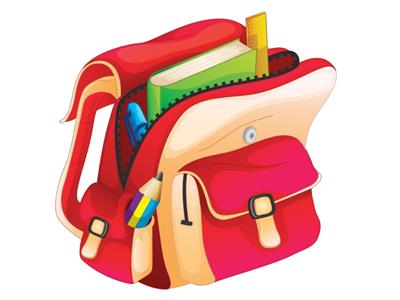PDF chapter test TRY NOW
After the prayer I offered namaaz, recited ten surats, ayat-al-kursi, kalma-e-Tayyab, in fact everything that I remembered. Then I blew over my bag saying Choo. Then, after saying bismillah, I realised that what they said was only too true — no one can erase what fate has decreed. Forget four rupees, there weren’t even four paise in my bag. Just a few textbooks and notebooks. One pencil. One sharpener. One Id card my Mamu had sent me last Id.
I felt like crying as loudly as I could, but then I remembered that school must have ended and the children must be on their way home. Tired and defeated, I got up from there and walked to the bazaar and waited for the school bell to ring, so that when the children came out I too would walk home with them as if I had come straight from school.
I didn’t even realise that I was standing near the jalebiwala’s shop. Suddenly, the halwai called out, “Kyon bhai, shall I weigh a rupee’s worth? Don’t want jalebis today?”
I felt like saying I won’t eat your jalebis today but, I’d sure like to roast your liver and eat that instead. But I wasn’t feeling too well that day, so I simply moved away.
Explanation:
Later, the boy sat under the tree, prayed to God, and recited ten verses from the Quran, ayat-al-kursi, kalma-e-Tayyab, and all the other prayers he remembered from the holy book. The boy then blew his bag over and said, "Choo." The word "choo" denotes the sound of someone blowing. It was done to remove the evil from his bag. The statement suggests that the absence of evil would bring him good fortune. After that, he said, “Bismillah”. The term “bismillah” refers to a person using Allah’s holy name before beginning a task.

Munna praying to God
Then the boy recited the holy name of God and opened the bag. He discovered there was no money in the bag when he opened it. Later, the boy realised that the people’s statements were factual and that no one can change what fate had decided. Whatever mistake one makes, he must face the consequences. He made the statement because he knew that he wouldn’t get any coins back. He only had a few textbooks and notebooks in his bag instead of four coins. In addition, his bag had an eraser, pencil, and sharpener. Also, he had an id card in his bag that was previously given to him by his uncle.

Things in Munna's bag
The boy cried as loudly as he could after learning that the almighty had not kept anything in his bag. Later, he realised that his school was probably ended and the students were on their way home. As a result, he considered leaving. Later, he felt exhausted and failed in his attempts, so he got up and walked from the railway station. He then proceeded to the bazaar, where he awaited the school bell to ring. He thought that after the children were out of school, he could join them. The statement was made because then only his parents would believe that he had come from the school.
As the boy was tired and sad, he did not even realise that he was standing in front of the same shop. At first, he thought that going to the jalebi shop was a sin, but without even knowing, he stood in front of that jalebi seller’s shop. Suddenly the boy heard a voice from his behind. It was none other than the sweet seller. After seeing the boy in front of his shop, the halwai asked him, "Kyon Bhai, shall I weigh a rupee’s worth?" Here the phrase "Kyon Bhai" literally means "why brother" in English. It is an expression of greeting. Coming back to the story, the jalebi seller asked the boy whether he did not want any jalebis today.

Sweetmeat seller
After hearing the sweet seller’s words, the boy became enraged. The boy thought of telling him that he didn’t require his jalebis today. But what he needed was the man’s toasted liver so that he could eat it. It implies that the boy was already miserable, and when the jalebi seller asked him whether he weighs a rupee worth of jalebis, the boy became angry. Later, the boy felt very weak, and he did not say anything to the jalebiwala. At last, he slowly walked away from there.
Meanings of the difficult words:
| S.No | Words | Meanings |
1 | Bismillah | An invocation used by Muslims at the beginning of an undertaking, which means "in the name of God" |
2 | Choo | Refers to the sound blowing, usually done to drive away evil spirits |
Reference:
National Council of Educational Research and Training (2008). It so happened. Jalebis- Ahmed Nadeem Qasmi (pp. 62-72). Published at the Publication Division by the Secretary, National Council of Educational Research and Training, Sri Aurobindo Marg, New Delhi.
